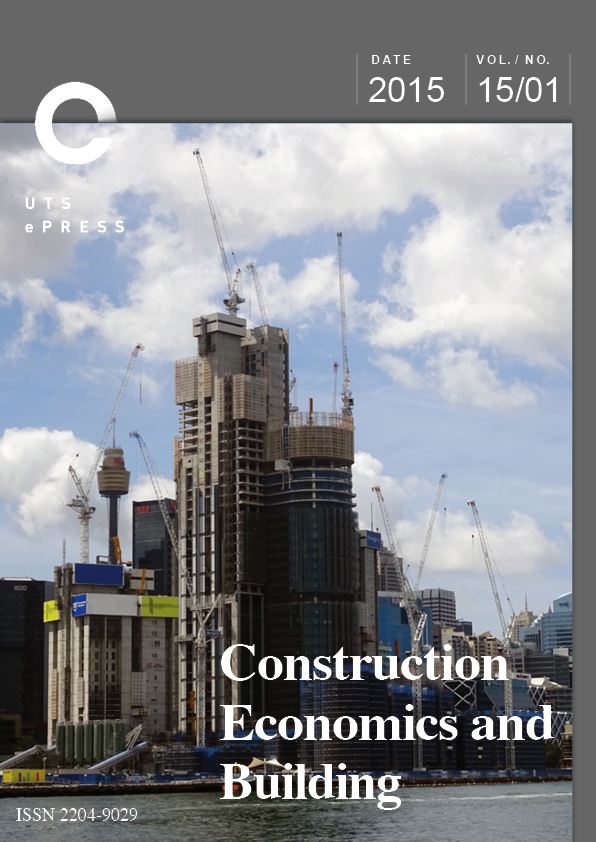From the Boom to the Collapse: a Technical Efficiency Analysis of the Spanish Construction Industry during the Financial Crisis
Main Article Content
Abstract
Despite its contribution to the Spanish economy, as far as the authors are aware, the technical efficiency of the Spanish construction industry has neither been measured nor have the factors influencing it been analyzed. This paper measures the technical efficiency of the Spanish construction sector before and during the current financial crisis and investigates the degree to which factors influencing efficiency levels in this sector have changed. Stochastic frontier analysis (SFA) methods are applied to firm-level data (692 constructions firms) over the period 1996-2011. The results show that the average Technical Efficiency of the sector is 0.85. Results also indicate that variables affecting Technical Efficiency in the construction sector must be analyzed depending on real state cycle. Based on the findings, policy recommendations to improve the sector efficiency were developed.
Important factors affecting efficiency change have been identified, and some managerial recommendations to increase the sector efficiency have been developed. The main recommendations for construction companies include: (1) cooperation and company mergers have a positive impact on companies’ efficiency; (2) accumulation of excessive financial burden damages the business long-term stability; and (3) business strategy should be tailored to economic prospects.
Paper Type: Viewpoint
Article Details
Section
Authors who publish with this journal agree to the following terms:
a) Authors retain copyright and grant the journal right of first publication with the work simultaneously licensed under a Creative Commons Attribution License that allows others to share and adapt the work with an acknowledgement of the work's authorship and initial publication in this journal.
b) Authors are able to enter into separate, additional contractual arrangements for the non-exclusive distribution of the journal's published version of the work (e.g., post it to an institutional repository or publish it in a book), with an acknowledgement of its initial publication in this journal.
c) Authors are permitted and encouraged to post their work online (e.g., in institutional repositories or on their website) prior to and during the submission process, as it can lead to productive exchanges, as well as earlier and greater citation of published work (See The Open Access Citation Advantage Service). Where authors include such a work in an institutional repository or on their website (ie. a copy of a work which has been published in a UTS ePRESS journal, or a pre-print or post-print version of that work), we request that they include a statement that acknowledges the UTS ePRESS publication including the name of the journal, the volume number and a web-link to the journal item.
d) Authors should be aware that the Creative Commons Attribution (CC-BY) License permits readers to share (copy and redistribute the work in any medium or format) and adapt (remix, transform, and build upon the work) for any purpose, even commercially, provided they also give appropriate credit to the work, provide a link to the license, and indicate if changes were made. They may do these things in any reasonable manner, but not in any way that suggests you or your publisher endorses their use.
